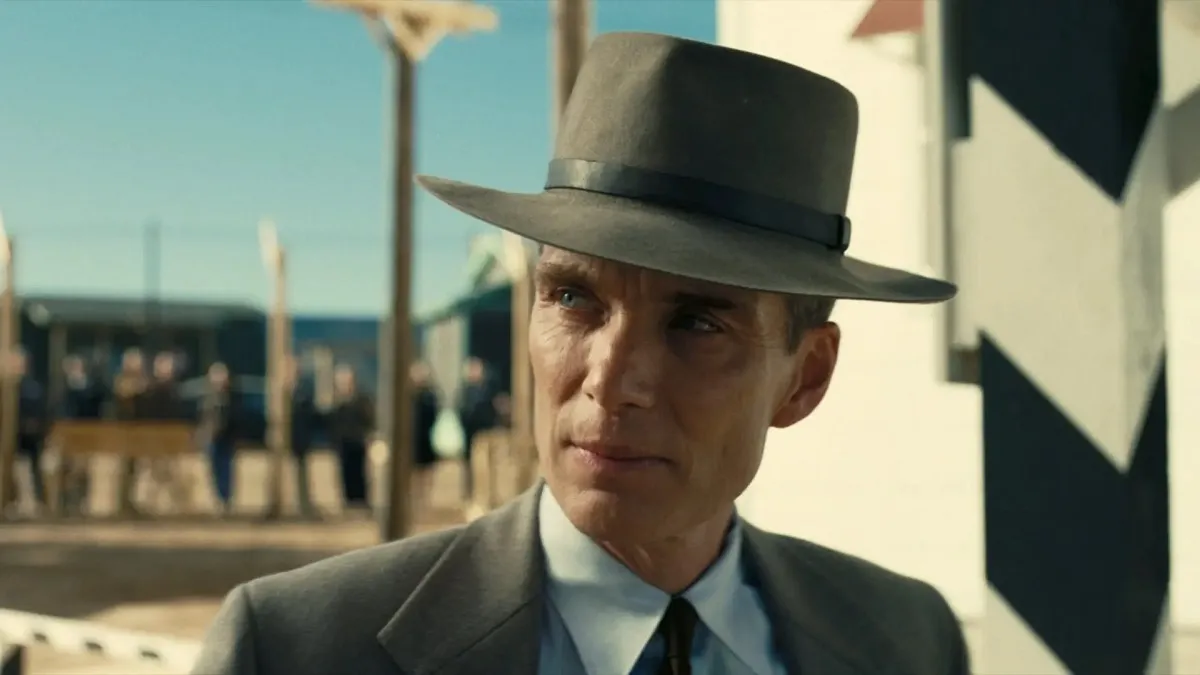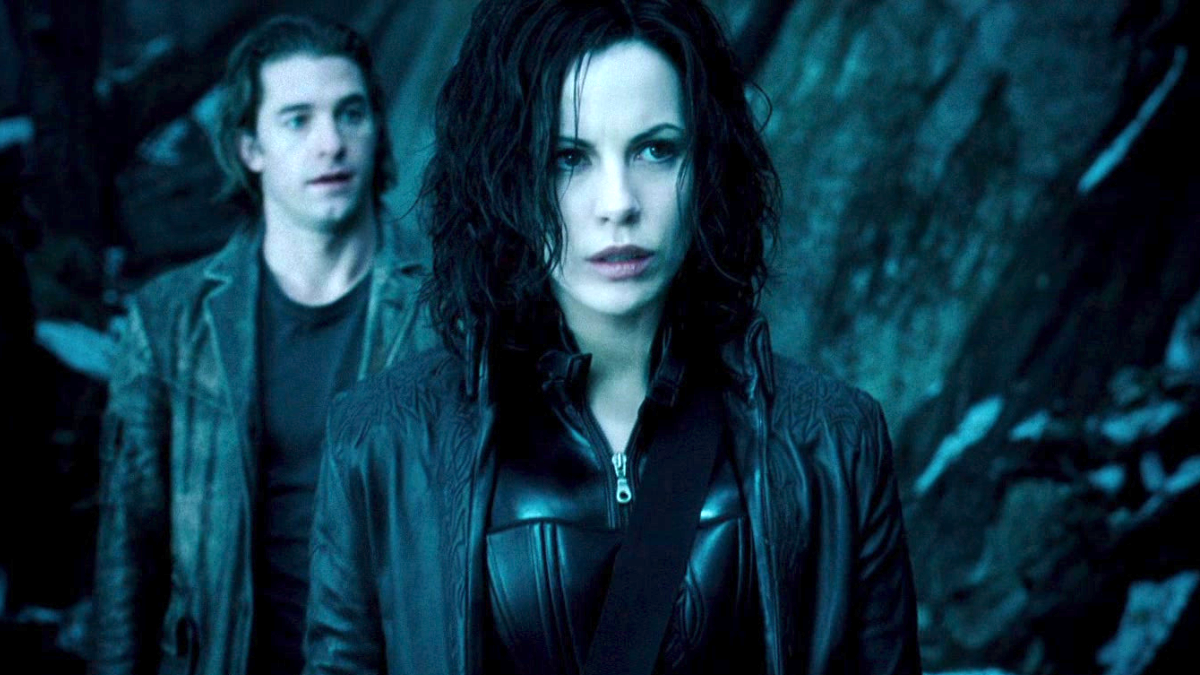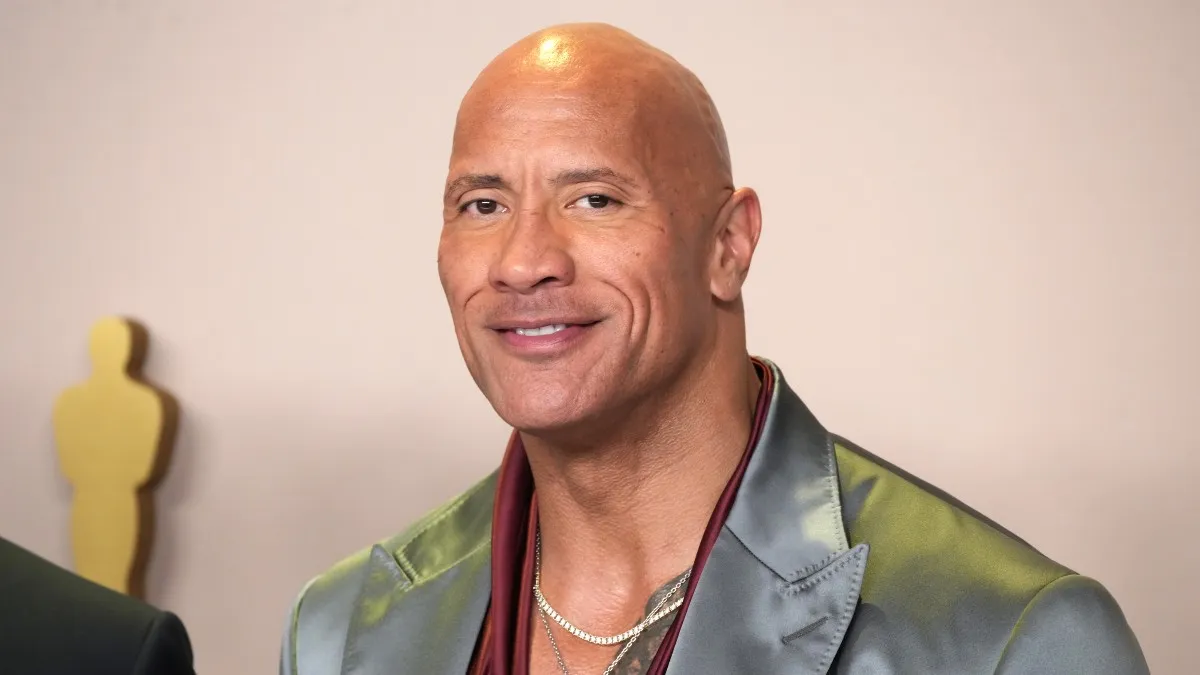Oppenheimer isn’t going to be many people’s favorite Christopher Nolan film, but it may well be his best.
Since the writer/director burst onto the scene in 2000 with the neo-noir Memento, those who like ambitious yarns and foreboding push-ins have considered him a sure bet with each new release. Fans have claimed that The Prestige, The Dark Knight, and Dunkirk are nothing short of masterpieces, while others cite the narrative geometry of Inception and Interstellar as their preferred brand of dense escapism. Yet, all of them are anchored by showstopping visuals captured on celluloid and with minimal CGI, making them optical stunners as well. The true test of Oppenheimer is whether Nolan can maintain his typically mammoth vision with a narrative that mostly comprises white men talking in small rooms. Fittingly, Nolan succeeds in a grand and unexpectedly horrifying fashion — just like his protagonist.
Per his own house style, Nolan doesn’t tell Oppenheimer in a linear fashion. Critics have called that a crutch in the past, but in his best features there’s always a reason for the structure. In Memento, Nolan wanted viewers to experience the unreliable memory of his protagonist by depriving them of established information. In Oppenheimer, he’s working at the intersection of time and space, catching molecules mid-dance, explosions pre-flare, and ultimately an entire life both assembling and blowing apart at the same time.
Early on, we find J. Robert Oppenheimer (Cillian Murphy) fighting homesickness as he struggles abroad to complete his PhD in physics. He can tell times are changing for Jewish people in Europe, but he also feels unwelcome because he’s primarily interested in theory over laboratory work. Upon returning to the United States to lecture on the emerging field of quantum mechanics, Oppenheimer is approached by US Army Officer Leslie Groves (Matt Damon), who wants to name the physicist the director of the Manhattan Project. Suddenly, a man who was always satisfied with conjecture alone is given a chance to fight the Nazis by forcing theory into reality.
Oppenheimer’s love life is integral to the proceedings, as it fleshes out who he is as a person — an egoist philanderer who’s never willing to give himself completely to one partner. Although his liaisons with communist Jean Tatlock (Florence Pugh) leave a mark, it’s biologist Katherine Puening (Emily Blunt) whom he eventually marries, despite her alcoholism and the grudge she carries for becoming a mother instead of an academic. Their embattled relationship isn’t quite the centerpiece of the story, but it serves as a deft fulcrum for the pivoting political drama.
If that weren’t enough, Oppenheimer’s quest to make the first successful atom bomb is intercut with black-and-white sequences from years later that focus mostly on Robert Downey Jr.’s Lewis Strauss, a politician and the head of the Atomic Energy Commission. Strauss tries to flatter Oppenheimer into keeping America at the forefront of the arms race, which may have worked before the destruction of Hiroshima and Nagasaki — but Oppenheimer grew into a different mindset later, arguing for de-escalation to salve his conscience.
There’s no doubt this is a packed movie. Watching Oppenheimer is a bit like speed-reading a history textbook, except with great dialogue and a searing Ludwig Göransson score. It’s truly surprising how few effects sequences Nolan offers here. He still shoots a good chunk of the film in 65mm IMAX, but it’s most often deployed in bracing close-ups. The choice is subtle but effective: Murphy begins the film as a youthful neurotic emboldened by his own genius. Many of those early shots are in 35mm and traditional widescreen. By the end, our protagonist is hollowed to the core, and having his gaunt features stretched four stories high in full IMAX ratio is all Nolan needs to convey what is lost.
Is there an Oscar in it for Murphy? After delivering great work for decades, this definitely feels like his time. His performance is impressively lived-in, while never feeling like he’s changing gears to evolve in the back half. Ditto for Downey Jr., who’s about as good here as he’s ever been. Strauss is a complex man; he’s unquestionably a patriot, but you never know where his true feelings end and his political ambitions begin. Top marks for Damon and Blunt as well, who distinguish themselves against a certified murderer’s row of supporting talent.
In fact, the sheer volume of the cast is the only potential problem here, as some of the smaller roles end up being crucial to the narrative in the final hour. Of course, Nolan is upholding history to some degree, and it’s true that some folks weren’t very close with Oppenheimer and still were called to testify about him once the physicist began opposing hydrogen bomb research. It just would have been nice to feel those puzzle pieces falling into place instead of trying to recall which five-minute role a person played two hours ago.
Despite that, we’re still talking about one of the best and most riveting biopics in recent memory. Some will bemoan how Nolan could have made a more conventional thriller that flexes the real fury of a mushroom cloud and gapes at cities flattened by fire. But it’s the space between molecules that Nolan is interested in. Like All the President’s Men and Zodiac before it, this epic chronicle of American history is more about the before and the after, the moments that birthed the revelations.
The director should be prepared to weather criticisms that he focuses entirely on the men behind the bomb and not the victims of its devastation. Yet a scene showing a host of government officials confronted with the brutality of their efforts spells out Nolan’s intent: The camera is kept firmly on Oppenheimer while his contemporaries react audibly to the horrors before their eyes. Here, Nolan has a perfect opportunity to show exactly what the Manhattan Project has wrought, but instead, we hear vivid descriptions of the Japanese victims while staring at the man responsible.
Nolan isn’t ignoring the lives destroyed; he just doesn’t want to dramatize them for the sake of pathos that’s already in the movie. The approach also drives a second layer of commentary where the film remains siloed in the myopic view of white men, as even today that’s how U.S. decision-makers experience the ravages they cause. Ultimately, the film draws immense power from what it doesn’t show — and still the fallout is palpable in every scene, burning bright and never fading.







